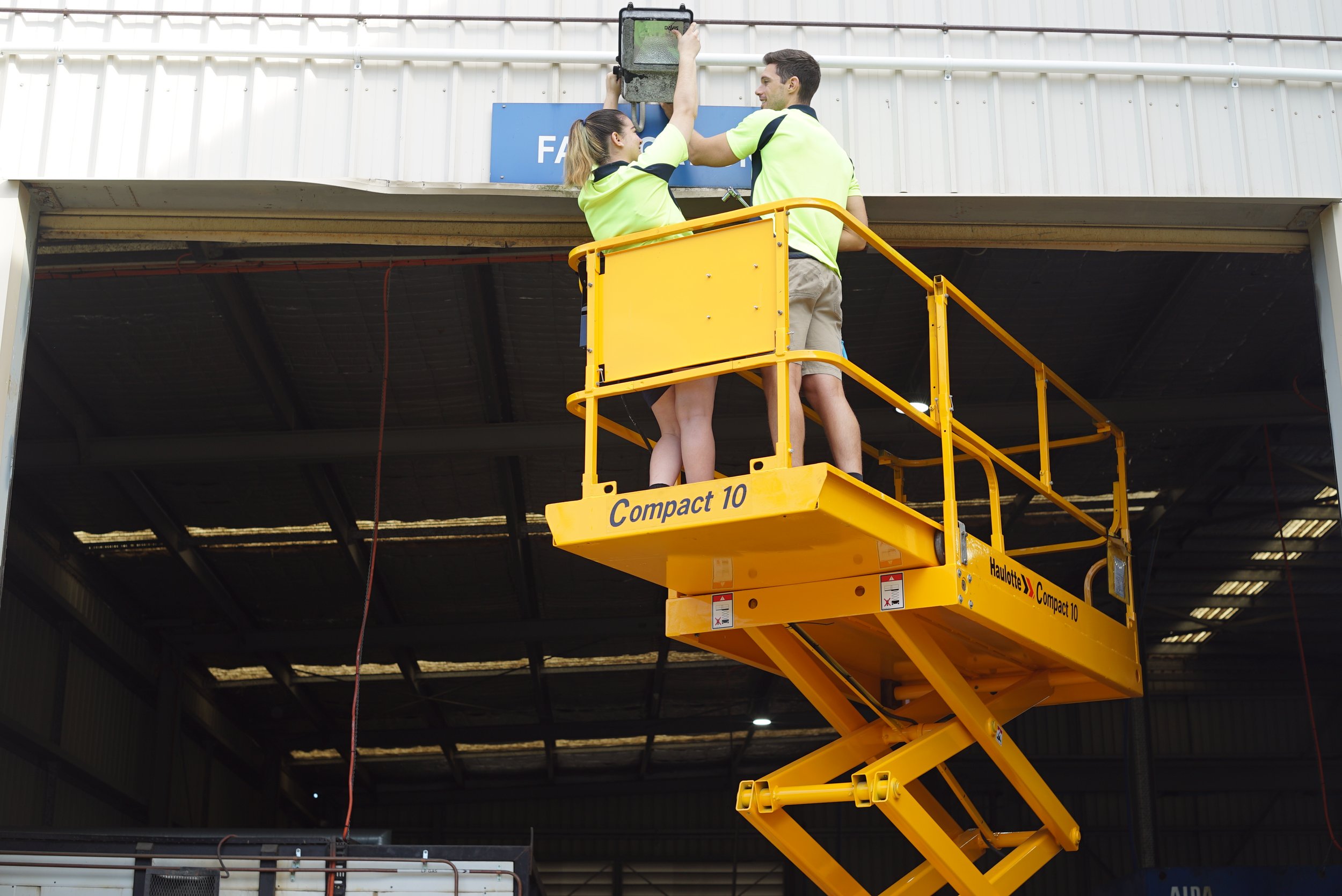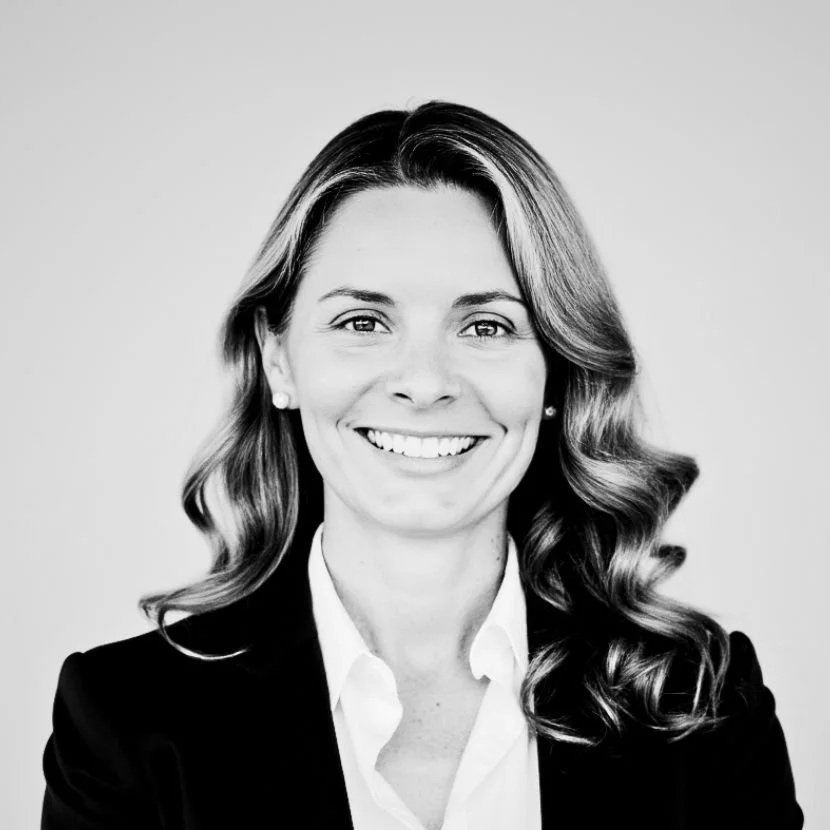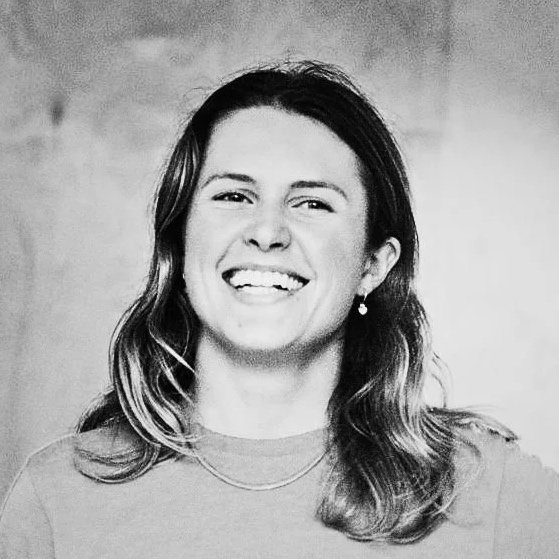Jérémy Canard On How Businesses Can Meaningfully Address Climate Change
Jérémy Canard is a Co-founder and Director at Give Industries, a profit-for-purpose electrical contracting company donating 100% of their profits to highly effective charities.
Give Industries is also the first certified Social Traders and ACNC registered Electrical Contractor in Australia. Jeremy embarked on the social entrepreneurship journey with his friends Kat and Calvin to apply high-impact philanthropy principles within a trade business.
He has a Master of Science in Environmental Management and over 7 years’ experience in Climate Change, Sustainable Building and Land Contamination Management with a career spanning from France, Taiwan, New-Zealand before settling in Australia 5 years ago.
Jeremy’s philosophy is to walk the talk and aims to reduce the discrepancy between his personal and professional values. This meant quitting his last consultant job in the middle of 2021 and getting involved full-time at Give Industries to develop company processes and start the company’s Energy Audit and Renewable Energy service offer.
Jérémy discusses opportunities for businesses to address challenges arising from climate change and how impact led individuals can adopt effective altruism to lead social change.
Highlights from the interview (listen to the podcast for full details)
[Indio Myles] - Could you please just share a bit about your background and what led to your interest in work in social enterprise?
[Jérémy Canard] - I'm Jeremy and I'm originally from France. I did my Masters in Environmental Management with a specialisation in sustainable building and land contamination management back in 2011. I had the chance to work in a few different countries, so like you mentioned I started in France, had a chance to go to Taiwan and I spent a bit of time in Christchurch (New Zealand) after the earthquake. I took part in some construction projects down there, and then about five years ago, I moved to Australia where I worked as a project manager and environmental scientist in land contamination management.
In the meantime, about three years ago, I started having a chat with [my friends] Kat and Calvin to create a social enterprise by turning an existing electrical contractor business into a charity.
With Calvin being a sole trader running his own business, we had the opportunity to create Give Industries, which is the first social enterprise electrical contractor. For the last two years, I was doing that as a side job. I was working full time for my other company, and then one day a week roughly I would be helping on health and safety by developing company processes. Last August, I decided to be full-time with Give Industries and use the opportunity to start a solar installation business with energy auditing. Having the ability to spend more time and being fully involved with Give Industries is making me really happy right now.
For our audience, tell us a bit more about Give Industries and its core social purpose?
At Give Industries, we are commercial electrical contractors. Most of our work is in maintenance services and projects, so we do office fit outs, lighting upgrades, data and project electrical work. At the same time, the main difference is that we are a charity. We have pledged to donate 100% of our profits to existing and highly effective charities. Behind that is our philosophy of effective altruism, and that's part of our business model and social purpose. The idea here is that we want to have the highest impact possible from our donations, so we don't have a charity program that we have created.
We pass on our profits to the best existing charities that have been audited and vetted by charity evaluators, the two main ones being the Give Well Organisation and The Life You Can Save here in Australia.
This allows us to really just pass on our profits and make sure that the program we are donating to has a real impact locally and our funds are going further outside of our bank account. We believe we have the highest impact for every donation, and we have four different recipients. The first one is the Against Malaria Foundation, and they provide bed nets in Kenya and other remote communities in Africa. We support GiveDirectly, and they do direct cash transfers to send money directly to very poor people in Africa. Then there is the Living Goods and also Animals Australia. At the moment, they are our four main recipients, and besides those donations, we also try to have a local impact through our recruitment processes and the company that we are developing.
We have had the chance to grow in 2021 and now we have 10 employees. We understand that as we grow more and more, we have more opportunities to recruit people with different backgrounds and also promote gender equality in the trade industry.
Unfortunately, gender equality is an area where there is a lot of work to do, with only 5% of people in the workforce being female. There are a lot of things to do, but we are really excited to have an impact through donations.
What advice would you give from your experience to early-stage social entrepreneurs that are seeking to get their innovative idea(s) off of the ground?
At Give Industries were involved early on with the Social Traders. We are Social Traders certified and are involved with the QSEC community here in Brisbane as well. That's been a very good place to access workshops and events where you meet a lot of different like-minded people. A very important point is being able to surround yourself with people that have similar values. In saying that, one very important aspect as well is being able to back the problem or the idea you have with research and data. You have to be able to defend your project and make sure that you have a positive impact by measuring that impact. Some questions can be really hard, and that's why we are using this system of an all-donation model.
Being within the framework of effective altruism, we can really track down where our money goes and have an idea of how many people we can protect from malaria or how much money we can bring to communities with cash transfers.
I think it's really important to be able to identify the issues you might be addressing, but also to make sure that there is research that you can rely on to develop the framework for your idea. In addition, it's really important to have potentially one or two other businesses who you develop stronger ties with. We enjoy a friendship, collaboration and partnership where you can talk between the leaders and the employees at any time, but also have meetings with a very core group of people. For example, at Give Industries, we have a very strong partnership with an enterprise in Brisbane called Austep Lighting, and they are a lighting provider who also donate 50% of their profits to charity. They're carbon neutral and have a carbon offset compensation program.
We are really like minded in terms of impact and the way we want to create business. They're also in the similar industry to us, so we can really share tips on company processes, tools we use, software we've been using and how we manage clients.
We are then also getting ideas for future partnerships or ideas on how to have better energy auditing for clients or lighting upgrades. Having those close relationship with one or two or even more organisations is fantastic. Even more if you have the time is good, but at the end of the day, it's always hard to spend time on a new thing. You're busy with the core idea of your work, but we really value at Give Industries our close relationship with specific enterprises.
Where do you see opportunities for businesses to reduce their negative contribution to climate change?
Unfortunately, a tremendous amount of work needs to be done, and that's also one of the reasons I initially got involved with Give Industries as I saw the opportunity to help within the sustainability part of the business. I initially did carbon offset programs and I tried embed the business practices within sustainability. It's quite important for the leadership within a business to first be educated about climate change.
There's quite a lot of things to be done in Australia, and it's very sad to see that Australia is one of the worst countries in the world in terms of carbon emissions per capita.
There's also a lot of things to be done to mitigate or impact the environment locally. One of the recent reports that's been released this year is a summary for policymakers from the IPCC in 2021.
This report provided information on pretty much everything that's currently impacting us through climate change and even into the next decades. We've seen the floods recently, the fires less than two years ago in Australia, and those events are going to become more frequent. We have to understand that business practices are going to adapt to climate changes impacts, and it's going to be within our lifetimes. In saying that, there are a lot of practical possibilities now for businesses to have a quick and rapid impact on their greenhouse gas emissions. The first one of them is you have to understand where you start, so if you don't have any information on your carbon emissions and energy issues, you need to do an energy audit and greenhouse gas assessment. Once you get a starting point, you can identify key areas in your business where you can reduce your emissions. That's a starting point, and then today with technology, we can really have quick and rapid reductions in emissions. You can make a LED light upgrade you perform HVAC management for cooling and heating, and you can look at your hot water.
Then, if you see you have a lot of carbon emissions that you cannot target, you can implement a carbon offset program.
That's pretty much where we start if a business doesn't have anything yet, but there's also a lot of support (and I will speak for Brisbane as we are based in Brisbane at Give Industries) from the local government and organisations like Social Traders and B-Corp for example. These organisations can help you to manage your waste and energy. We go and seek help from people that have been educated already and that can help reduce our emissions.
What other organisations have you seen that you believe are creating a strong social impact?
I think I will start first with the charities that we are donating to, because we really share a passion for the issues that they are targeting. The fact that we can help children and communities in Africa who are getting infected by malaria, which is unfortunately a disease that kills way too many people every year, is amazing. For example, with the Against Malaria Foundation, we are informed of all of our donations to have a clear idea of the impact that we have. We have donated to them $63,000 since we started Give Industries three years ago, and with this $63,000, we have helped protect 90 villages and more than 40,000 people. When we look at this organisation, that's what we want to see. We want to see the data and impact from our donations. GiveDirectly for example, is a very interesting organisation, because they are changing the mindset on poverty alleviation, which historically has always been about western developed countries and people going into remote areas in Africa and trying to bring knowledge on how to get out of poverty. GiveDirectly is solving this issue by doing direct cash transfers, so there is no middleman in the donation. All donations go to GiveDirectly and they are sending the money straight to people they have identified for poverty alleviation programs. For every dollar we donate to GiveDirectly, 88 cents goes to the people, and their donations are backed by research. What we think is that the people locally have the knowledge of where they need to spend the money. There is this stigma saying that if we don't check where the money goes and what they're using it for, people are going to spend it on alcohol or make other poor purchases.
Actually, the research shows that people know where to use it and they use it way better and more efficiently than a poverty alleviation program within a charity trying to teach people where they should use their money.
Most of the money we've given directly goes to people trying to start local businesses. Most of the time it's not social enterprise, but they will try opening a market store, taxi business or provide education for their kids. Those donations have a really high impact locally, and that's a global organisation that we really see creating radical change socially and environmentally. On a more local level to us, there's a lot of great organisations. Impact Boom is one of them, you are having this power to connect people together, teach and share the good vibes of social enterprise. We are quite happy with Give Industries because we can really look into our supply chain. I know for example with the waste we generate, we can promote circular economy principles. For example, we partner with Substation 33 for all of our E- waste and some of the construction waste we generate, but they take it, and we know that we are supporting them in creating employment for people with disabilities and others who have disadvantaged backgrounds. From the supply chain point of view, we also partner with Nice Coffee Co., and these guys are donating 100 percent of their profits to a school in Kenya. As a trade business, coffee consumption is quite high in Australia, so we're quite happy to support them as well.
To finish off Jeremy, are there any books or resources that you would recommend to our listeners?
I mentioned The Life You Can Save as a charity evaluator. Initially, The Life You Can Save was a book by a philosopher, Peter Singer from Australia, and this book is pretty much the core concept for how and why we created Give Industries. It's at the base of everything and every decision we make, so I highly recommend anyone to read it. The beauty of it is it's all free as a digital version, and there's also an audio book available on platforms. It's a very nice and easy read, and it provides great information on the key principles of high impact philanthropy and the moral obligation from people with privilege.
When life has been fairly easy for me, there's a moral obligation for me to have a positive impact in the world and help people overcome systemic issues.
If you want to take a bigger dive into effective altruism, I highly recommend The Introduction To Effective Altruism podcast by 80,000 Hours. They have a list of 10 episodes, and they are fairly long and complex. They really provide the key philosophical concepts and morals from the effective altruism movement and how the argument can really shape your lifestyle and career choices. One of the key components of effective altruism is having the idea that most of the impact in your life is going to come from your choices and how much income you can generate. That way, you can look at how many donations you can potentially make. Those resources are pretty much the two I would recommend, but on a more general note [it's something not directly business related], it's really important to listen, read or consume artistic content from people outside of your background. Listening to indigenous voices from any country where you're living is crucial. In Australia for example, I'm really trying to read more of and listen to Aboriginal and Torres Strait Islander voices. Consuming this type of content is really important.
Initiatives, resources and people mentioned on the podcast
Recommended books
The Life You Can Save: How to Do Your Part to End World Poverty by Peter Singer
Effective Altruism: An Introduction by 80,000 Hours








